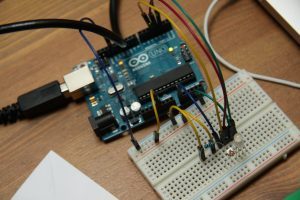Even if you already know what a robot is and have heard of robotics engineering, those definitions are probably inconsistent depending on who you ask. Especially if you talk to one person who is working on complex machine learning algorithms and another person who is maintaining industrial robots for a production line.
They’re both Robotics Engineers, but they both do very different things.
So, the bigger question is, what is robotics engineering?
By the end, you’ll have a good understanding of the robotics engineering field, how to get a degree in robotics, and what job titles to look for when searching for a robotics career.
What does a Robotics Engineer do?
- What is a Robotics Engineer? A robotics engineer works on the software, electronics, and mechanics for automated devices, robots, and electro-mechanical systems.
- Why should you become a Robotics Engineer? You excel at math and science and want an interdisciplinary career with a breadth of options.
- Subjects: Advanced Math, Programming, Computer Science, Mechanical Engineering, Electrical Engineering, Automation
- Salary Range: $51k – $117k, $85K average (Source: Payscale)
- Degree Programs: Associates, Bachelor of Science, Masters, PhD
- My overall thoughts: Robotics Engineering field has so many options to choose from. You can start your career in Industrial Automation and later move into algorithms, machine learning, or even electronics. If you enjoy interdisciplinary, but highly technical work, you’ll enjoy the challenge that robotics has to offer.
What is robotics engineering?
Robotics engineering is the field encompassing the development and improvement of autonomous devices, robots, and electro-mechanical systems. If you’re thinking about becoming a robotics engineer, I recommend having excellent problem-solving skills, mechanical aptitude, and advanced math background.
Robotics is interdisciplinary, so you’ll need skills in three subjects:
- Computer Science
- Electrical Engineering
- Mechanical Engineering
1. Computer Science
Everyone wants to be a programmer these days, and coding for robots isn’t an exception. Computer Scientists write the “brains” behind how robots sense, perceive and respond to their environment. Popular programming languages for robotics are Python, C++, and C. Not everyone in robotics is a software engineer; however, the majority of engineers working on robots have programming experience.

Programming and software development is vastly underestimated. You have to have a solid understanding of at least one programming language, plus the ability to apply that code to a particular area in robotics. Some popular areas of focus include machine learning, image processing, computer graphics, 3D geometry, and the Robot Operating System (ROS).
2. Electrical Engineering
There are two main sectors of electrical engineering that you can get into in robotics. First is embedded circuits, controllers, and PCB design. The second is industrial circuits, PLCs, HMIs, and robot arms.
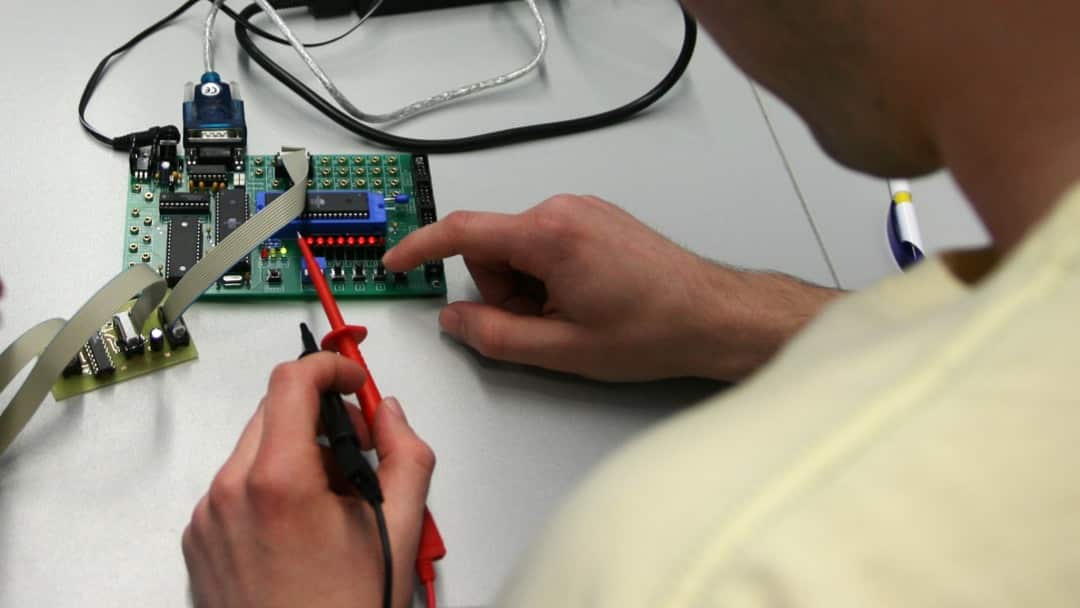
While electrical engineers could have either scope of work (and some work on both), they both require slightly different skills. One is focused more on low-level and low power systems and the other is more high-level and higher power systems.
If you plan on going into electrical engineering to work on industrial equipment, you may want to verify that your school’s electrical engineering program has hands-on courses in PLCs, debugging and troubleshooting, and industrial robot arms. Alternatively, you could enroll in an online EE degree program and learn at your own pace.
3. Mechanical Engineering
The third area of robotics is mechanical engineering. You’ll want to become comfortable with CAD modeling, kinematics, control theory, and material properties.
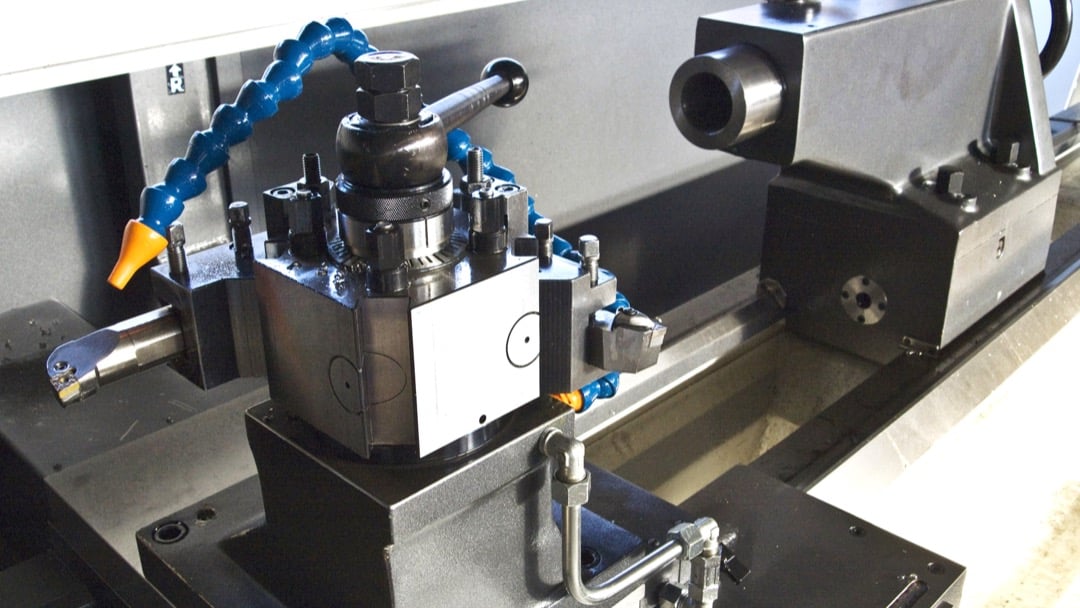
Some topics that go hand-in-hand with mechanical engineering are in manufacturing. They include CAD/CAM, Milling, Forging, 3D printing, and best practices in schematics and drawings. A lot of manufacturing skills are picked up on-the-job or in a more hands-on technical degree program. You can also opt for an online manufacturing course to further familiarize yourself with machining topics.
If you choose to complete a degree in any of these subjects, you can still work as a robotics engineer. If you know you’re better at programming, then I’d recommend pursuing a Computer Science degree and then look for jobs within robotics companies. Having a strong ability in one of these areas is better than being sort-of good at all of them.
Robotics Engineering Degrees
However, if you find that you want cross-discipline coursework, then a robotics engineering program might make more sense than just a degree in computer science, electronics, or mechanics. Robotics degree programs are popping up around the country. Whether you want to get an Associates Degree, Bachelors Degree, Masters Degree, or a Ph.D. in robotics, there’s a program for that.
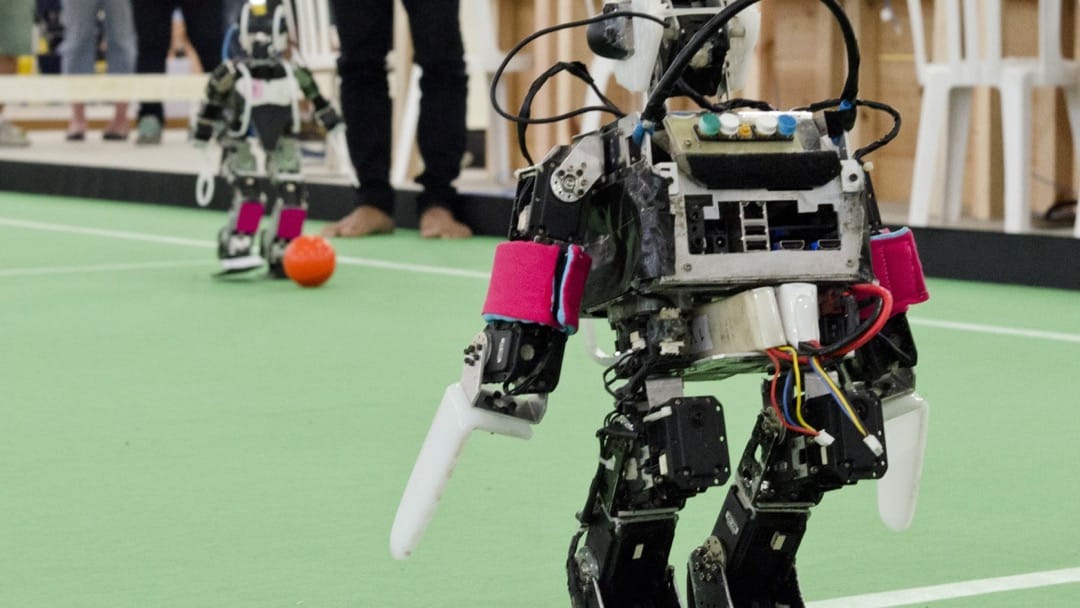
Top 5 Schools for Bachelor of Science degrees in Robotics Engineering
- Worcester Polytechnic Institute
- Carnegie Mellon University
- Johnson & Wales University
- Oregon Institute of Technology
- Olin College of Engineering
Top 5 Schools for Master of Science degrees in Robotics Engineering
- Carnegie-Mellon University
- University of Michigan-Ann Arbor
- Georgia Institute of Technology
- Oregon State University
- Johns Hopkins University
If you’re planning to go into research robotics or teaching MIT, UPenn, and the Colorado School of Mines also have Ph.D. programs in Robotics Engineering. If you want to be more hands-on with robots, check with your local community colleges and trade schools.
Many community colleges have (better) Industrial Robotics labs than the universities, and their programs align more with the type of work you’d be doing in manufacturing. Check for programs like Manufacturing and Automation, Automation Certificate, or Robotics Associate degree.
Then, once you finish your degree, the next step is to search for a job.
Robotics Engineering Careers
With so many options in the robotics engineering field, there are just as many choices when it comes to working with robots. However you decide which robotics degree to pursue, the next big question is how to find a robotics engineering job.
While there are plenty of career experts out there, one of the methods I’ve used is searching within very niche robotics fields. Become a highly-proficient robot programmer. Learn the in’s and out’s of mobile robot design with ROS. Pick a robotics subject you’re interested in, then define the gaps and areas that you need to work on.
Once you fill these gaps and gain experience, robotics engineering careers are limitless. You can choose to stay within engineering as a Senior or Fellow Engineer, or you can migrate into Management, Operations, or Business.
I’ve put together a list of niche robotics fields that you can use for inspiration:
- Controls and Automation
- Programming and Algorithms
- Support and Field Application Engineering
- Robot Platforms (ROS, Mobile Robots, Humanoids, etc.)
Granted, this isn’t a comprehensive list, but it should help you narrow down the field of robotics.
1. Controls and Automation
Controls and Automation engineers work in production facilities or for machine integrators. Manufacturing controls engineers spend their day troubleshooting electromechanical equipment, robot arms, and PLCs. They are also responsible for work cell documentation, operator training, and process improvement projects. Control engineers in a factory may also work closely with controls engineers from machine integrators.
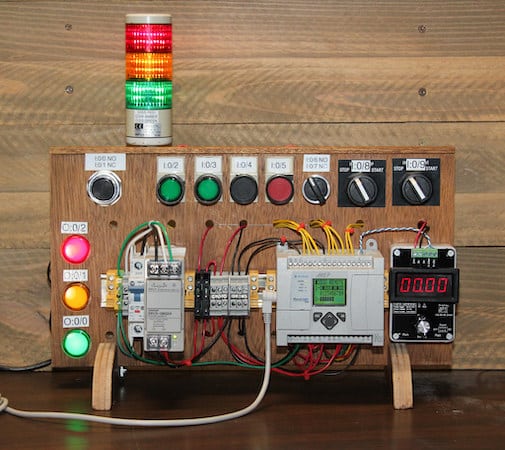
Automation or controls engineers, that work at an integrator, design, build and program automated equipment for manufacturing plants. They’re also responsible for installing, commissioning, and supporting machines in the factory. If you enjoy working with industrial equipment and want to create automated systems, then a controls or automation engineering job might be what you’re looking for.
Alternative Job Titles: Manufacturing Engineer, Systems Engineer, Robot Programmer
2. Programming and Algorithms
However, if people aren’t your thing, and you’re not a fan of climbing on machines, then being a software developer is probably a better fit. Programmers or Computer Scientists write sophisticated software for robots. These might include computer vision programs, APIs for web applications, or machine learning algorithms for mobile workstations.
This field requires a solid foundation in software development. If you want to be writing hardcore code for robots, then I recommend getting an advanced degree in computer science with a focus on development for robots. You’ll also need a strong background in advanced mathematics if you want to work in fields like 3D graphics, machine control, or image processing.
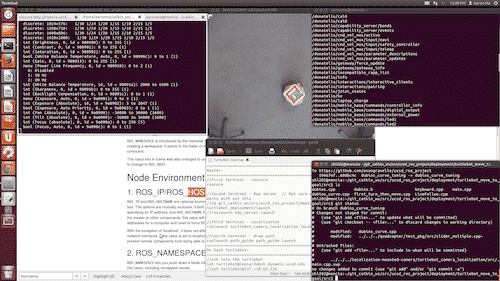
Popular robotics programming languages are Python, C++, and C. Expect to spend a lot of time in Linux, so feeling comfortable in the terminal is a must. Lastly, code management is critical, so I recommend learning the software development lifecycle and version control.
Alternative Job Titles: Machine Learning Engineer, Computer Scientist (Robotics), Software Developer (Robotics), Applications Engineer
3. Support and Field Application Engineering
If you’re more of a natural problem-solver and are good at fixing things, then Customer Support or Field Application roles are other options.
Many robotic integrators and companies need engineers who support the use of their robotics products. Rather than directly impacting the development of a robot, you’ll help customers use the product correctly. This includes documentation, manuals, phone, and in-person support.
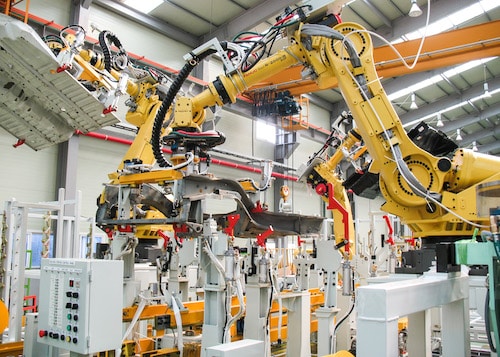
Application Engineers also ensure that the customer’s needs are met by verifying that the robot they want to use is the correct fit for the job.
If you’re looking for a robotics job that is more people-facing; then check out Application or Field Support jobs.
Alternative Job Titles: Application Engineer, Customer Service Engineer
4. Robot Platforms (ROS, Mobile Robots, Humanoids, etc.)
The last category is reserved for robot platforms. If you want to work on a specific robot platform like Kiva or iRobot or FANUC arms, then you can look for robotics engineering jobs directly with those companies.
Because these are product development roles, expect to have an advanced robotics or software degree or many years of experience developing features for robots.
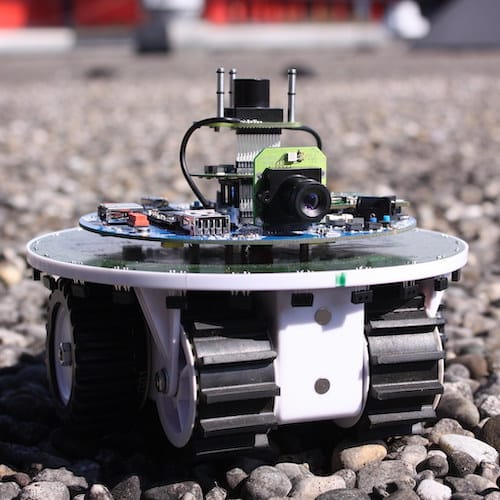
Some other interesting areas to consider are mobile robots, humanoid robots, military robots, and research robots. Again, these areas are highly technical, so while they rank high in cool factor, they also require years of becoming an expert in program and system design.
Alternative Job Titles: Robotics Engineer, Senior Robotics Engineer, Staff Engineer
Getting into Robotics
In this article, you learned what robotics engineering is. But, frankly, if you ask three people about robotics engineering, you’ll probably get seven different answers. Just remember that robotics is a very wide field with a lot of opportunities. This can work to your advantage (or against you) depending on the skills you develop over time.
The next step is to determine if a career in robotics is for you. If so, I recommend jotting down the specific positions and job titles you’re aiming for. You can use the guide above or think about some of the robots that inspired you to check out this article. Then, get to work learning these subjects. Figuring out what you want to do is the easy part. Actually grinding out for years and putting in the work is where most people get stuck.
Regardless of where you want to end up, robotics is a healthy field to enter. And, well if you’re not quite ready to apply for that robotics engineering job, the best way to get started with robotics is to start building robots.


